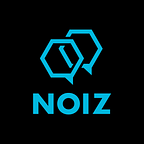Digitally Woke April Meetup: “The Dangers of Click Clusters and Information Bubbles in Content Marketing.”
“Clicks feed algorithms and algorithms dictate what is shown. This is how click clusters and information bubbles are created.”
An important message our Marketing Technologist Connor shared at our April Meetup. As technology evolves, people need to be more aware of how their data is tracked and used. They need to be wary of the digital footprint they leave behind.
What are click clusters?
Let’s begin by breaking down what is meant by a click, a cluster, and a click cluster. A click occurs every time a user selects an option, every time a user visits a page and every time a user searches for something. A cluster is a group of people who share similar characteristics. A click cluster is a group of people that share similar click patterns.
Data collected from clicks helps companies find the best method for marketing content to each of its segments. In the process, personalization become possible.
Personalization happens when companies market to users on an individual level. This occurs regularly, even in operating systems, like when a computer or phone asks “Would you like to send data back, so we can improve your experience?”.
Apps, digital platforms, media sites, even stores with geo-location tech are all feeding your clicks into algorithms that automate the segmentation, personalization, and content delivery processes.
Even news channels use clicks to create clusters for personalized content delivery. In the case of Hong Kong based media site South China Morning Post (SCMP), their Head of Product Malcolm Ong stated at a Web Wednesday event that the content above the fold on the homepage is determined by the editorial staff, and the content below the fold is determined by algorithms analyzing each visitor’s click history.
Data Clusters Applied to CRM Systems
From Asana to Hubspot to Salesforce, automated segmentation is not only easy for businesses to obtain, but also easy for them to link the automation to their Customer Relationship Management (CRM) systems. It was surprising to see that most everyone attending the Click Cluster event had used a CRM system, but few were aware automation and CRM go hand in hand.
Most businesses use automated CRM systems to store their consumers personally identifiable information (PII), their interests and their preferences.
How this information is collected brings into question ethics. An ethical business would only use information that a consumer willingly provides. Sadly, long and confusing Terms of Services agreements trick many consumers into freely giving access to their information.
The way it should work is that consumers provide their information to brands, rather than allow brands to collect their information from clicks. This probably won’t become a reality for quite a while, but there are still many business today that collect data ethically.
Once data has been collected ethically, automation and personalization can begin. One example of a personalized experience would be birthday wishes.
Consumers are frequently required to input their dates of birth when filling out forms online. Once the form information is uploaded to the CRM system, automatically, an algorithm or automation tool will recognize the inputted dates of birth and know to send out a “Happy Birthday” email to consumers on each of their special days.
A study conducted by Campaign Monitor indicates that personalized subject lines increase conversion rate by 26%. The beauty in today’s tech advancements is that such personalization is actually now quite easy to set up.
People can Customize Content Bubbles to Add Value to Their Lives
People frequently see the same content over and over again. If a user clicks on cute cat and dog videos, he or she will be shown more content relating to pets, cute animals, and other happy-mood clips across the web.
People already know this happens, and yet, they tend to prefer the lack of diversity in the content they see. This is a bad cycle to end up in.
What most people don’t realize is that they can update preferences, add and remove interests, and change follow settings within most of the major digital platforms, like Facebook and Google. Once a person becomes aware of the algorithm, he or she can manipulate the information that the algorithm is able to collect, which, in turn, alters the type of content the person will see.
Discussion Time
Among our guests was a tech consultant who brought up the 2019 trend of voice and inquired how this could affect the concept of ‘click’ clusters, as with voice, there is no official click.
However, voice files can be tagged with text, and upon submitting a voice file, the tag can be triggered, just like a click. The details within voice messages, though, are not frequently considered in data analysis, yet. Voice still has a way to go in Natural Language Processing (NLP) and Natural Language Generation (NLG) before their messages can be easily translated into text or audio that an algorithm can understand and sort.
Voice SEO is becoming more mainstream, though, and is likely going to become one of the biggest tools for understanding audiences.
Parting Thoughts
In the digital age, data profiles are like resumés; and it is each person’s responsibility to develop his or her own resumé. A resumé about cute cats and dogs will get a job in cute cats and dogs. A diverse resumé creates more opportunities. A diverse resumé expands one’s knowledge.
Make your clicks wisely, make your clicks honest, and make your clicks add value to your life.
Don’t fall victim to a downward spiralling click cluster.
Stay tuned for our next Meetup!
<<< https://www.meetup.com/Digitally-Woke/ >>>
#Events #NOIZ101 #Dataprivacy #Contentbubble
#staydigitallywoke #martech #digitalmarketing
We are preparing downloadable presentation decks including the click cluser presentation shortly, please stay tuned!
URL will be uploaded to the below link:
<< Landing Page Form>>
